Outer Space & Universe
Outer Space & Universe
Space, also known as outer space, is the near-vacuum between celestial bodies. It is where everything (all of the planets, stars, galaxies and other objects) is found.
On Earth, space begins at the Kármán line (100 km above sea level). This is where Earth's atmosphere is said to stop and outer space begins. This is not a firm boundary but is a convention used by scientists and diplomats.
Items in space are free to move back and forth; up and down; and left and right. These three dimensions are what make 3D space. Items also move forward through time, which is sometimes called the fourth dimension.
The majority of space contains very little matter and so most of it is a vacuum. Scientists do not know how big space is but we do know that space is extremely big, and is always expanding.
According to the big bang theory, all matter and energy in the Universe was compressed into a very small space. Then it exploded and started expanding. Space is still growing in size today; this means the distance from one galaxy to distant galaxies is getting longer.
Gravity is the force that keeps the Moon in orbit around the Earth and the planets in orbit around the Sun. Gravity can stretch and bend space similar to how a heavy ball placed on a stretched sheet of rubber will cause the rubber to stretch. The scientist who discovered that space can bend is named Albert Einstein. How gravity bends space is part of his theory of general relativity.
Astronauts, Cosmonauts, Taikonauts and Spationauts
An astronaut is any person who is trained by NASA to travel and perform tasks in space. Although the space traveler may not necessarily be a United States citizen, each astronaut does go through a rigorous training regiment by the National Aeronautics and Space Administration. Other space travelers go by other names then astronaut depending on their country of origin.
In the United States, astronaut is derived from the Greek words ástron (star) and nautis (sailor). While, in Russia, a space traveler goes by the name космонавт (English: cosmonaut), which is derived from the Greek words kosmos (universe) and nautis (sailor). Westerners call a space traveler from China a taikonaut, based on the 1998 writings of Chiew Lee Yik and Chen Lan where the term tàikōng (great emptiness), Chinese for “space”. In China, the term yuháng yuán (universe navigator) is used for space traveler.
Only the United States of America (United States), Russia (earlier, the Union of Soviet Socialist Republics), and the People’s Republic of China (China) have sent manned spacecraft into space. Other countries have assisted these countries by sending their own space travelers on space missions. For instance, a French space traveler is called a spationaut (from the French word spationaute), which is derived from the Latin spatium (space) and Greek nautis (sailor). (plural in Greek nautes = sailors)
-
02:49
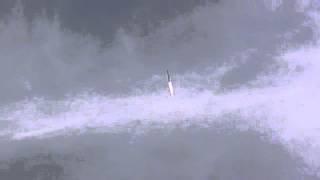
Sonic Boom Seen - Rocket Launch Shockwave Ripples Clouds | Video
Added 714 Views / 0 LikesAs NASA launched its Solar Dynamics Observatory on Feb.11th 2010, the booster's pass thru Mach 1 ("sound barrier") produced a visible trace. The transonic wave interacted with a sundog, refracted light from high altitude ice crystals (video @ 1
-
03:44
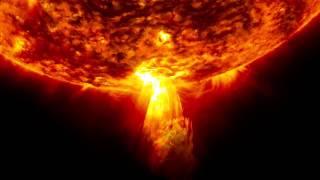
Sun's Beautiful Fury On Display In Observatory's 4th Year Highlights | Video
Added 629 Views / 0 LikesDancing plasma rippling through the Sun's atmosphere, astonishing solar explosions and time-lapsed sunspots photographed by the Solar Dynamics Observatory's many lenses during 2013. The probe launched from Kennedy Space Center on Feb. 11th 2010.
-
01:25
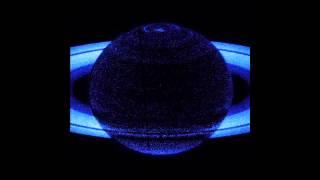
Saturn's Auroras Dance in 360-Degree NASA Video
Added 763 Views / 0 LikesNASA's Cassini spacecraft snapped ultraviolet and infrared imagery of Saturn's auroras in April&May, 2013. High energy electrons interacting with hydrogen molecules in the planet's atmosphere create the phenomenon.
-
01:01
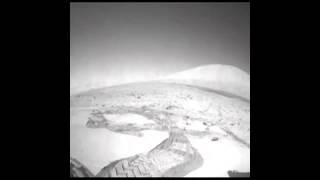
Curiosity Drives Over Dune On Mars - Rear Cam Video
Added 742 Views / 0 LikesThe Mars Science Laboratory made the 23-foot drive on Feb. 6th, 2014. The rover's rear Hazard-Avoidance Camera (rear Hazcam) captured 9 images of the drive. On the right side of the horizon is Mount Sharp. (Looped several times)
-
01:03
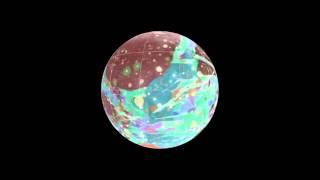
Jupiter's Moon Ganymede - First Global Geologic Map Revealed | Video
Added 801 Views / 0 LikesSurface features, such as furrows, grooves and impact craters are illustrated on this 360 degree view of the moon. The best imagery from NASA's Voyager 1 and 2 and Galileo spacecrafts were used to create it. Galileo Galilei discovered it in 1610.
-
01:08
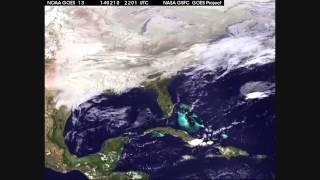
Massive Winter Storm 'Pax' Seen From Space | Time-Lapse Video
Added 864 Views / 0 LikesThe NOAA GOES-East satellite has sent imagery down to Earth from Feb. 10-12, 2014. The storm is blasting the east coast of the United States with dangerous winter weather.
-
01:09
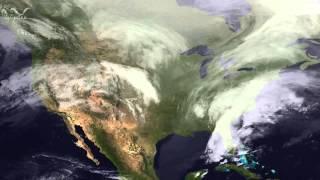
Winter Storm Battering Northeast U.S.: Latest Space-Based Imagery | Video
Added 753 Views / 0 LikesThe winter storm the battered the southeast United States has now settled over the Northeast. Over a foot of snow, damaging winds and ice are forecasted for Feb. 13th, 2014. NOAA's GOES-East satellite has been providing coverage.
-
01:55
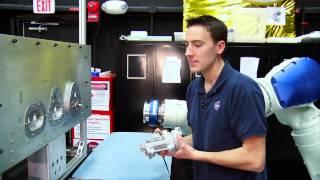
Dangerous Propellents Tested for Robotic Satellite Refueling | Ground Test Video
Added 16.7k Views / 0 LikesUpcoming tele-operations test - Remote Robotic Oxidizer Transfer Test (RROxiTT) robot at the Kennedy Space Center will be controlled by engineers at the Goddard Space Center. A corrosive toxic liquid fuel (NTO) will be pumped into a mock satellite.
-
02:18
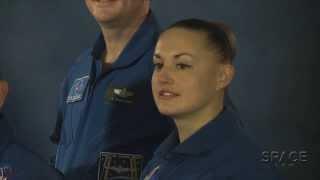
Female Cosmonaut To Become 4th Russian Woman In Space | Video
Added 790 Views / 0 LikesCosmonaut Elena Serova salutes her female predecessors that paved her way to becoming a cosmonaut. She will become the first Russian woman in space since Yelena Kondakova's STS-84 mission in May 1997.
-
04:41
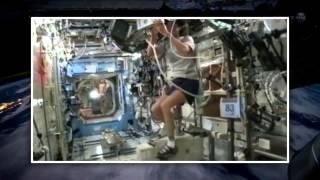
Ten Years Of Research Onboard The ISS, Ten More Years Ahead | Video
Added 886 Views / 0 LikesEven though it was under construction, the International Space Station has been performing groundbreaking research over the past ten years. A recent ten year extension means the ISS will have another decade to do research in a number of fields.
-
01:33
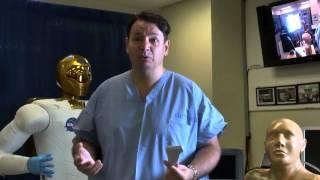
NASA's Robonaut 2 Performs Telemedicine
Added 758 Views / 0 LikesNASA is training Robonaut 2 in telemedicine, hoping that one day the robot (controlled by humans) could administer care to astronauts flying aboard the International Space Station.
-
01:24
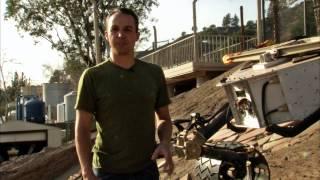
Curiosity Passes 5K Mark, Leaves Behind Terrain Of Sharp Rocks | Video
Added 805 Views / 0 LikesThe Mars Science Laboratory recently crossed a sand dune called Dingo Gap, leaving behind a terrain full of sharp, well cemented rocks on its way past 5,000 meters traveled on the martian surface.
-
03:56
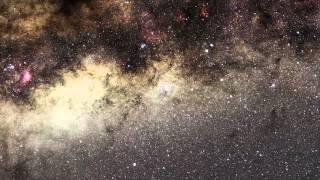
Scorpion's Stinger 'Guards' Diamonds In The Sky | Star Cluster Video
Added 800 Views / 0 LikesBright star cluster M7 (NGC 6475, the 'Ptolemy Cluster') appears near the tail of the Constellation Scorpius. This new image from the ESO's La Silla Observatory features these stars, chemically similar to our Sun. Celestial soundtrack by 'Super 400
-
01:27
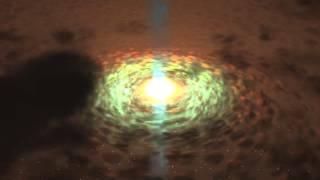
Supermassive Black Holes Hide Inside Gigantic Clouds | Animation
Added 796 Views / 0 LikesAstronomers using data from NASA's Rossi X-ray Timing Explorer (RXTE) have accounted for a dozen instances of X-ray signals diminished by gas clouds. Scientists have surmised that the clouds can average 4 billion miles across and 2X Earth's mass.
-
09:41
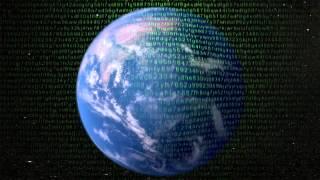
Real 'Death Star' Fires High-Energy Particle Beam At Sister Star | Video
Added 4,303 Views / 0 LikesA rare black widow binary star system consists of one of heaviest neutrons stars (~2X Sun Mass) known and a small companion star (12X Jupiter Mass) in the tightest orbit ever seen. High-energy particles from the former are obliterating its companion.
-
00:59
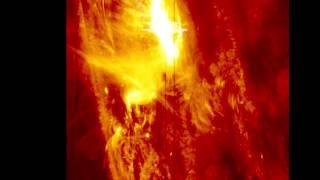
Strong Solar Flare Eruption Caught on Video
Added 737 Views / 0 LikesOn January 28th, 2014, NASA's Interface Region Imaging Spectrograph (IRIS) witnessed an M-class flare, the strongest its seen since it was launched. The spacecraft studies the Sun's chromosphere.
-
05:31
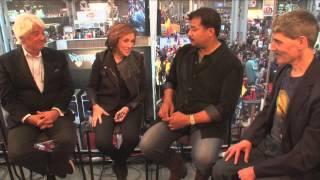
Why Did COSMOS Dock To FOX? Neil deGrasse Tyson Answers | Video
Added 783 Views / 0 LikesHow did 'COSMOS: A SPACETIME ODYSSEY' come to premiere on a network not normally associated with science literacy? Neil deGrasse Tyson, Ann Druyan&Mitch Cannold share perspectives on science and censorship with Space.com's @DavidSkyBrody.
-
03:26
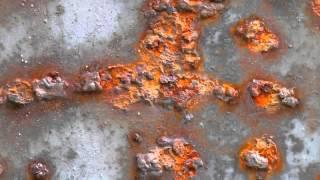
Clean-Burning 'Fire Water' Tested On Space Station | Video
Added 1,146 Views / 0 LikesAstronauts have been experimenting with supercritical water that can aid ignition of fire in microgravity. It has down to Earth applications for municipal waste disposal and saltwater purification. Fire Burns Differently in Space, read more here: http://g
-
00:46
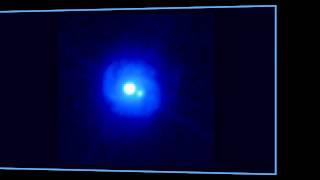
'Einstein Lens' Bends Blazar Burst For A One-Two Punch | Video
Added 870 Views / 0 LikesNASA Fermi observatory makes the first gamma-ray measurements of a gravitational lens with an observation of Blazar B0218+357 behind a massive spiral galaxy. The gravity of the galaxy bends and amplifies the light of the blazer.
-
02:47
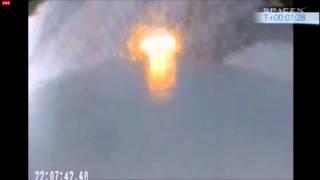
Lift-Off! SpaceX Launches Thaicom 6 Satellite | Video
Added 785 Views / 0 LikesThe commercial space company has launched a second satellite in 2 months aboard an upgraded Falcon 9 rocket. It launched from Kennedy Space Center in Florida on January 6th, 2014. Photos here: http://goo.gl/xDvJFn Credit: SpaceX
